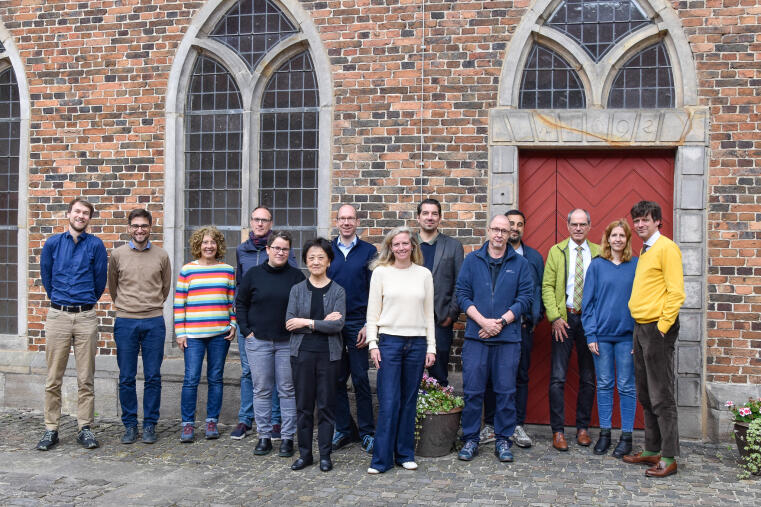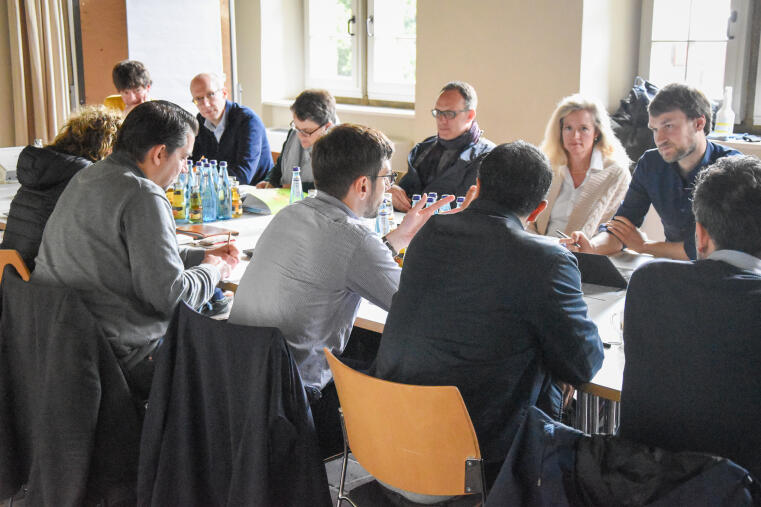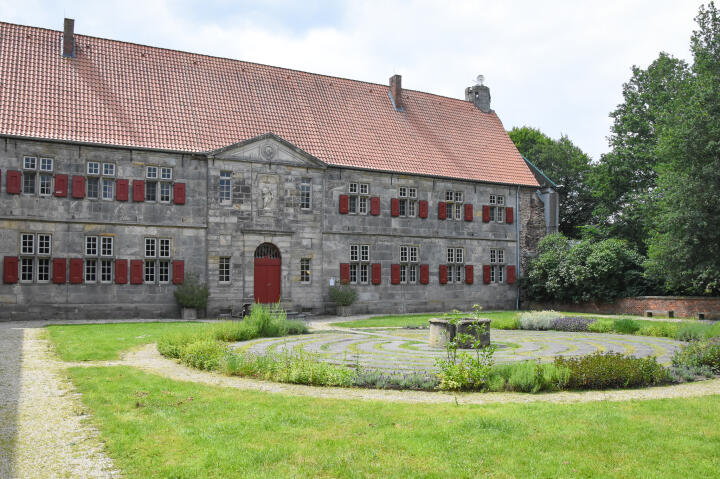Sharing ideas in monastic seclusion
Retreat of the Käte Hamburger Kolleg at Frenswegen Monastery, 13/14 June 2024
by Lennart Pieper
Academic work at the Kolleg thrives on the dynamic between the freedom to conduct one's own research and the exchange of ideas. The latter was the focus of the annual retreat in mid-June, which brought together fellows, directors and academic staff at the beautiful Frenswegen Monastery near Nordhorn.

Benjamin Seebröker opened the first of two days full of intensive discussions with a presentation of his habilitation project on early modern manorial rule. The historian explained to his interdisciplinary audience the (ideal) types of Grundherrschaft and Gutsherrschaft identified by historical research, only to immediately add that this picture needs to be differentiated. From a comparative perspective, he will analyse the dynamics of manorial rule in various regions of the Holy Roman Empire, paying particular attention to court cases between landlords and subjects.
After a hearty lunch, the programme continued with a reading session by legal historian and EViR fellow Ulrich Falk. Falk gave a vivid introduction to the complex matter of the so-called Zwangsvergleich (compulsory settlement) and presented the "Begründung des Entwurfs einer Konkursordnung" for the German Empire as a relevant source. The compulsory settlement was one of seven legal answers found since the 16th century to the question of how to deal with a bankrupt company. In practice, this diversity is even further increased by the fact that these models can be combined with each other.
The presentation was followed by a conceptual discussion about the Kolleg's planned source reader. The fellows can contribute annotated sources from their research to this long-term publication project and demonstrate the different methodological approaches of the various disciplines to phenomena of legal unity and pluralism. Due to the diversity of the research projects based at the Kolleg, the source book will be able to cover the topic in a wide range of disciplines, epochs and regions.

The second day of the retreat was dedicated to the Münster Glossary on Legal Unity and Pluralism, which will soon be available in its fourth, expanded edition as an EViR Working Paper and will be published as a book at the end of the Kolleg. Until then, fundamental questions still need to be clarified, such as how the existing lemmas – from A for appeal to V for Verkehrssitte – should be supplemented and systematised. In any case, the large number of suggestions for new articles contributed by the fellows from their respective disciplinary perspectives showed how fruitful such an endeavour is.
In addition to the working sessions, there was plenty of time during the two days for joint activities, not least an extended walk through the beautiful surroundings of Frenswegen Monastery to the Dutch border. The evening discussions in a relaxed atmosphere also contributed greatly to fellows and employees becoming more familiar with each other as a group.
Retreat at Frenswegen Monastery 2024










